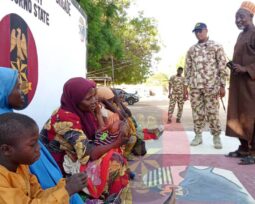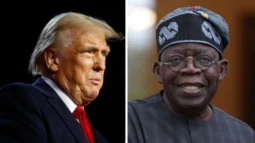As Nigeria approaches the 2027 presidential election, the political landscape is already buzzing with speculation, strategies, and alliances. Among the prominent figures expected to vie for the presidency is former Vice President Atiku Abubakar, a seasoned politician and perennial contender. Despite his political clout, extensive network, and experience, several factors suggest that Atiku may face significant challenges in securing the presidency in 2027. This article explores the key reasons why Atiku Abubakar is likely to lose the 2027 Nigerian presidential election.
1. Age Concerns and Public Perception
Atiku Abubakar, born in 1946, will be 80 years old by the time of the 2027 election. This age factor is a significant hurdle, as many Nigerians are increasingly vocal about their preference for younger, more dynamic leadership. The complexity of Nigeria’s governance, coupled with its economic and security challenges, demands a leader perceived as physically and mentally agile. Critics, including political commentators and former allies like Ayo Fayose, have argued that an octogenarian president may struggle to meet the demands of the office, especially in a developing nation like Nigeria. Public sentiment, as reflected in social media reactions, often highlights Atiku’s age as a barrier, with many calling for fresh faces to lead the country.
2. Electoral Fatigue and Repeated Candidacy
Atiku has contested the presidency multiple times since 1993, with his most recent attempt in 2023 resulting in a loss to President Bola Tinubu. His repeated bids have led to what some analysts describe as “electoral fatigue.” Voters may view his persistent candidacy as a lack of new ideas or an inability to adapt to Nigeria’s evolving political dynamics. Political analyst Aminu Mohammed noted that Atiku’s long history of unsuccessful presidential runs could deter voters who see him as a candidate of the past rather than the future. Additionally, within his former party, the Peoples Democratic Party (PDP), there is growing frustration among members who believe Atiku’s ambition has caused internal divisions, further weakening his support base.
3. Zoning and Regional Politics
Nigeria’s political landscape is heavily influenced by an informal zoning arrangement, where power is expected to rotate between the northern and southern regions to promote national unity. President Tinubu, a southerner, is currently serving his first term, which ends in 2027. Many political stakeholders, particularly in the south, argue that power should remain in the southern region for another term to maintain this balance. Atiku, a northerner from Adamawa State, faces resistance due to this zoning principle. His candidacy in 2023 already sparked controversy for upturning the PDP’s zoning tradition, and a similar move in 2027 could alienate southern voters and political elites. The coalition he champions, the African Democratic Congress (ADC), may also face internal conflicts over zoning, as southern candidates like Peter Obi and Rotimi Amaechi could demand the presidential ticket, further complicating Atiku’s prospects.
4. Challenges Within the Opposition Coalition
Atiku has been a key figure in forming the ADC coalition, which includes heavyweights like Peter Obi, Nasir El-Rufai, and David Mark, aimed at unseating Tinubu’s All Progressives Congress (APC). While this coalition has generated buzz, it faces significant hurdles. Internal rivalries, particularly over who will emerge as the coalition’s presidential candidate, could undermine its unity. Atiku’s ambition to lead the ticket may clash with younger or southern aspirants like Obi or Amaechi, who may argue for a southern candidate to align with zoning sentiments. Moreover, the ADC’s adoption as a platform was a compromise due to challenges in registering a new party, and existing party members have accused Atiku and others of hijacking the party, potentially leading to internal discord. If the coalition fails to present a united front, it risks splitting the opposition vote, as occurred in 2023, benefiting the incumbent APC.
5. Tinubu’s Incumbency Advantage
Incumbency is a powerful factor in Nigerian politics. President Tinubu, who won the 2023 election with 37% of the vote, has the advantage of controlling state resources and political machinery. Analyst Sani Hamisu argues that in Nigeria, sitting presidents seeking re-election rarely lose, as they leverage state power to consolidate support. Tinubu’s reforms, such as fuel subsidy removal and exchange rate adjustments, have shown signs of stabilizing the economy, with the World Bank projecting 3.6% growth in 2025. If these reforms yield visible results by 2027, Tinubu’s re-election bid could gain traction, especially among voters prioritizing economic stability. Atiku’s coalition, while formidable, must overcome this entrenched advantage, which is further strengthened by the APC’s strong political network in the southwest and parts of the north.
6. Limited Regional Appeal
Atiku’s voter base is primarily concentrated in the Northeast and parts of the Northwest, but his appeal in other regions, particularly the North Central, South-South, Southeast, and Southwest, is limited. A social media post cited in reports claims that Atiku “can’t win a single state” in these regions, labeling him “unelectable.” His 2023 performance, where he secured 29% of the vote compared to Tinubu’s 37%, underscores this regional challenge. The emergence of Peter Obi as a strong contender in the Southeast and among younger voters further fragments Atiku’s potential support base. Without broadening his appeal across Nigeria’s diverse regions, Atiku’s chances of winning remain slim.
7. Economic and Social Challenges Outweighing Campaign Promises
Atiku’s campaign has historically emphasized neoliberal policies, such as privatizing the Nigerian National Petroleum Corporation (NNPC) and removing subsidies. While these resonate with international financial institutions, they risk alienating ordinary Nigerians facing economic hardships. Tinubu’s administration has already implemented similar reforms, leading to inflation and cost-of-living pressures, which have sparked public discontent. If Atiku proposes similar policies, voters may perceive him as offering more of the same challenges without a clear alternative. His ability to craft a compelling, populist message that addresses immediate concerns like insecurity, unemployment, and poverty will be critical but challenging given his track record.
8. Allegations of Corruption and Public Trust
Atiku’s political career has been dogged by corruption allegations, including his involvement in a U.S. case where former Representative William Jefferson was convicted of attempting to bribe him. While Atiku denies these allegations, they continue to shape public perception, particularly among younger voters who prioritize transparency and accountability. In a country where 90% of citizens believe Nigeria is heading in the wrong direction, trust in leadership is paramount. Atiku’s long political history, while an asset in terms of experience, also makes him a symbol of the establishment, which many Nigerians, especially the youth, are eager to move away from.
Conclusion
Atiku Abubakar’s ambition to become Nigeria’s president in 2027 is driven by his extensive political experience, vast network, and determination. However, several factors—his age, electoral fatigue, zoning controversies, coalition challenges, Tinubu’s incumbency advantage, limited regional appeal, economic policy concerns, and lingering corruption allegations—stack the odds against him. While Atiku’s coalition with Peter Obi and others could pose a significant challenge to the APC, internal divisions and public sentiment favoring younger leadership may hinder his chances. For Atiku to defy these odds, he would need to overcome regional and generational divides, unify the opposition, and present a transformative vision that resonates with Nigeria’s diverse electorate. As it stands, these hurdles make his victory in 2027 unlikely.







